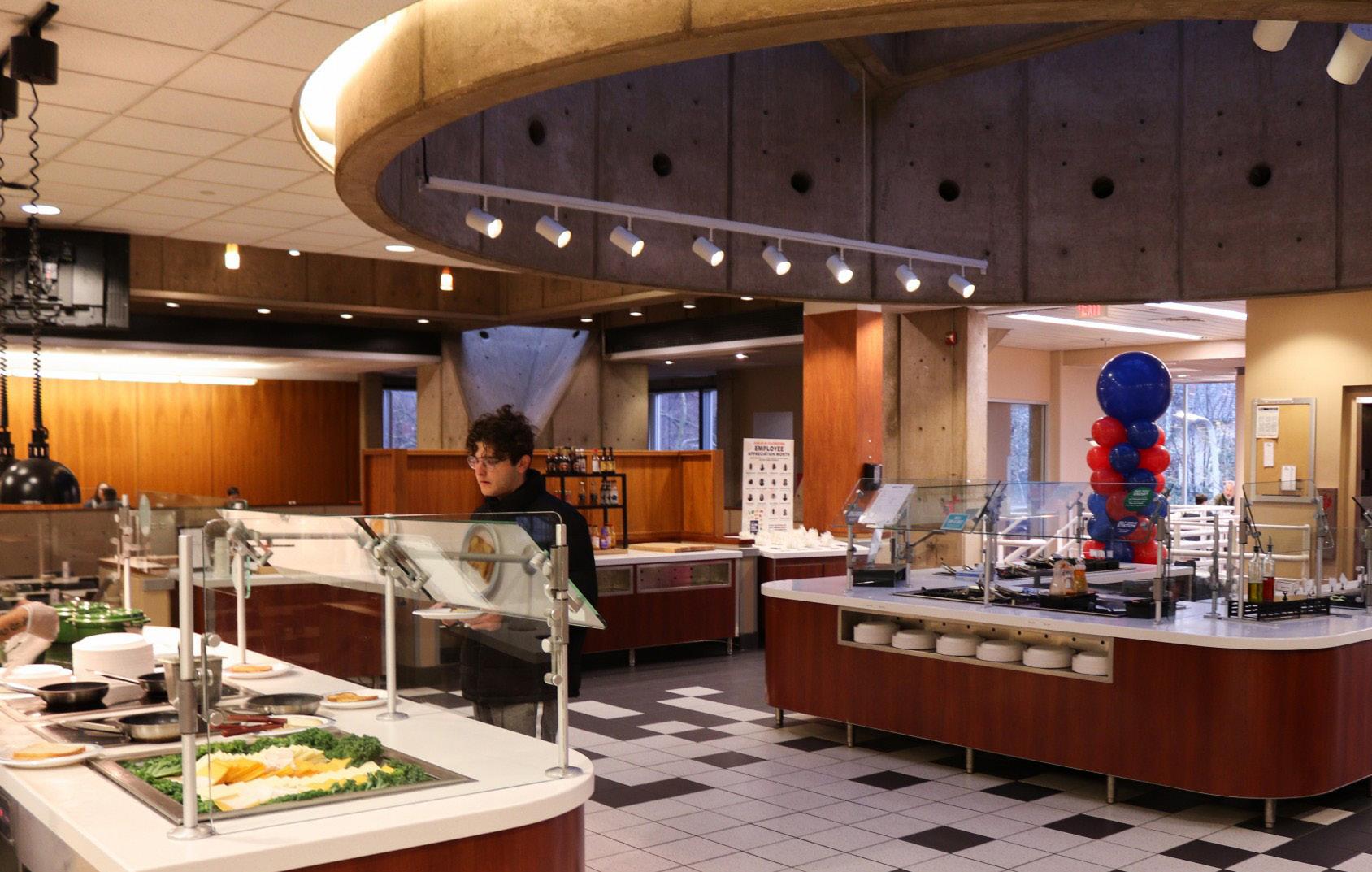
3 minute read
Pass/fail it, unless you’re in the College
wasted on regressive programs that facilitate drug use. While it is important to address the root causes of substance abuse, the harms associated with drug abuse are an arguably more pressing matter. Consequences of drug abuse not only pose a threat to the individual at hand, but can also have society wide impacts when considering the spread of infectious diseases.
As much as eliminating drug use altogether is a noble goal, it is not necessarily a practical one — at least in the near future. The factors contributing to drug use and the transmission of HIV/AIDS are complex and difficult to address, involving social, economic, and behavioral influences. Through harm reduction strategies, such as needle exchange programs, negative consequences of drug use can and should at least be reduced, even if the usage itself cannot be stopped.
By failing to advocate for and prioritize the implementation of NEPs, we risk sending the message that individuals struggling with addiction do not deserve recognition or protection. This stance not only perpetuates stigmatization, but also ignores the reality that substance abuse affects people of all backgrounds and demographics. Through adopting a harm reduction approach and supporting such evidence-based programs, we can work towards a more just and compassionate society that prioritizes the health and dignity of all its members.
AKSA CHOUDHRY is a College first year studying health and societies from Elizabeth, N.J. Her email is aksa@sas.upenn.edu.
ISABELLA’S IMPRESSIONS | The College’s education policies should be amended to allow for more pass/fail opportunities social science, along with one free elective. While the pass/fail policies are stricter than those for Wharton and Engineering students, Nursing students are still permitted to pass/fail their foreign language requirement, an opportunity not granted to students in the College.
Disciplines. None of the courses that fulfill these requirements may be taken pass/fail.
Engineering students are required to complete six general electives, with at least two courses in the social sciences and two in the humanities. Students are welcome to format their schedules to minimize stress that could stem from these lessSTEM-oriented general education requirements. For example, up to two of the general electives can utilize approved courses in the Technology in Business and Society course list. Such substitutions are not offered in the College. A student could not take business courses that may be useful for their degree as a substitute for any general education courses that are not of interest to them.
Furthermore, the School of Engineering also allows students to pass/fail up to four courses, including those that fulfill the social science and humanities requirements. Courses outside of a student’s area of expertise can then be taken for the purpose of learning without the pressure of a grade.
Understandably, each school is permitted to make their own general education requirements that fit the needs of their students. It appears, however, that all other schools besides the College of Arts and Sciences have better acknowledged the strengths and weaknesses of their students. The other schools recognize that general education courses are likely not a student’s primary area of interest and because of that, they may pose a source of academic stress. The College, with the most requirements and the broadest array of majors, has failed to make such accommodations.
The academic umbrella of Penn is expansive. For undergraduates there are four schools — the College of Arts and Sciences, the Wharton School, the School of Engineering and Applied Science, and the School of Nursing.
While students from these schools are free to take classes in the other schools, each school comes with its own unique general education requirements. The requirements put in place for students in the College, however, do not permit them to take courses pass/fail for general education requirements. This is not consistent with the requirements for other undergraduate schools and unfairly burdens students in the College.
Students in the College face both the most extensive number of general education requirements and the strictest pass/fail policies. College of Arts and Sciences students have 12 requirements: Writing, Foreign Language, Quantitative Data Analysis, Formal Reasoning and Analysis, Cross-Cultural Analysis, Cultural Diversity in the United States, Society, History and Tradition, Arts and Letters, Humanities and Social Sciences, Living World, Physical World, and Natural Science Across
Wharton students’ general education requirements are similar: They include at least one humanities course, one STEM course, one social science course, and three cross-cultural perspectives courses; a writing requirement is included as well. Wharton students are free to pass/fail any general education courses other than those that count towards the cross-cultural perspective requirement.
Nursing students are required to fulfill sector requirements, a writing requirement, and a foreign language requirement for their general education. Their six credits include courses in humanities and
In the College, a student studying Biology would be required to take a history course for a grade, whereas a Mechanical Engineering student in SEAS could take the same course pass/fail. Such inequities must be adjusted for and students in the College should be granted the opportunity to pass/ fail at least some of their general education requirements if they choose. We are all Penn students, and academic inequities between the schools should not be so blatant and a burden to some.
ISABELLA GLASSMAN is a College senior studying philosophy, politics, and economics and Italian studies from Suffern, N.Y. Her email is iglass@sas.upenn.edu.






